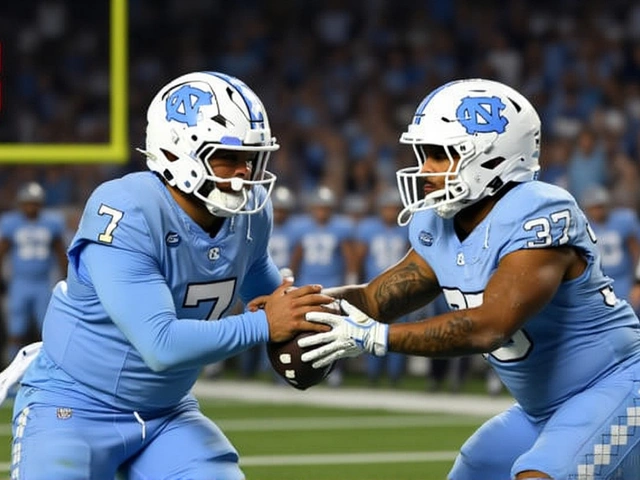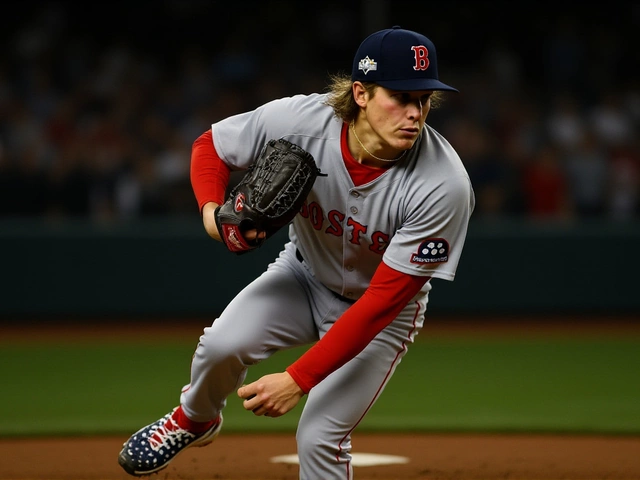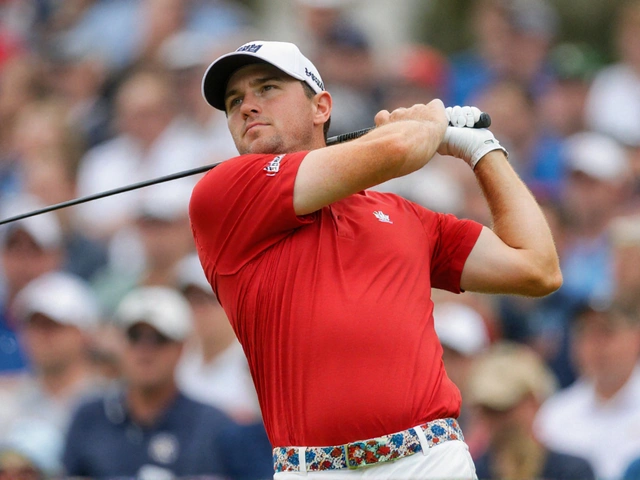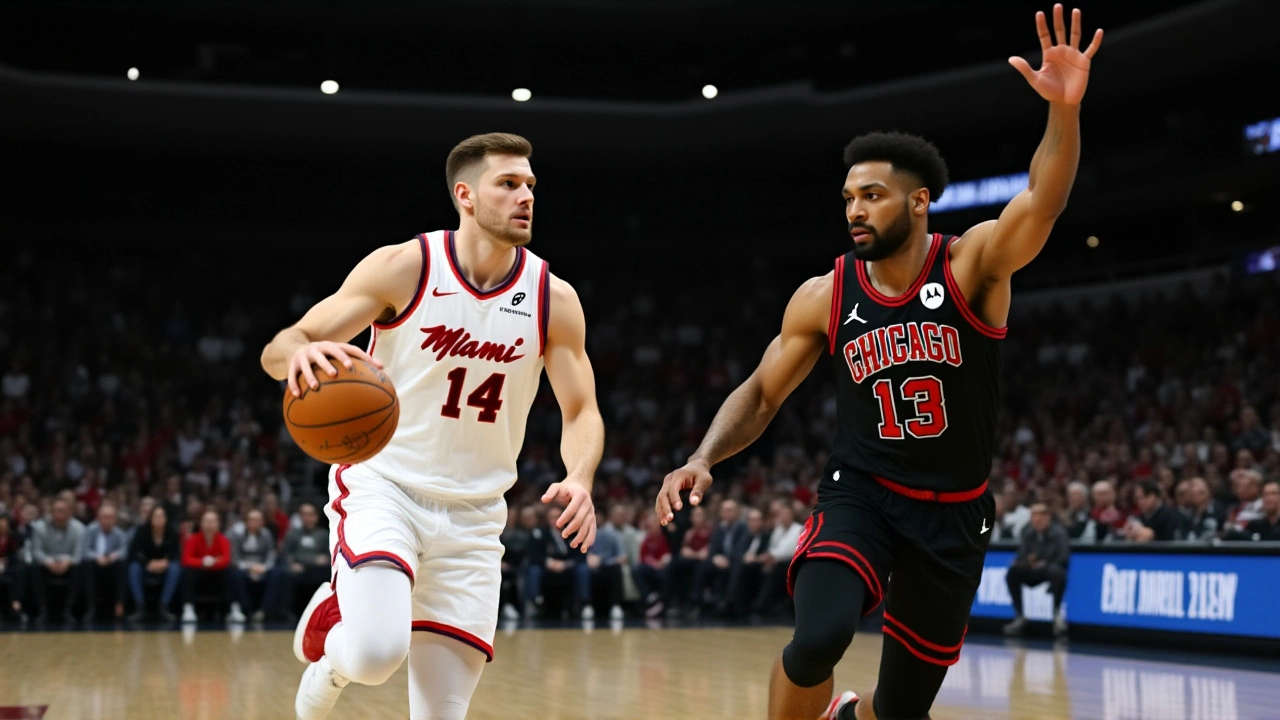 22
Nov,2025
22
Nov,2025
When Tyler Herro dropped 38 points on the Chicago Bulls on April 16, 2025, it wasn’t just a scoring explosion—it was a statement. The Miami Heat crushed their Eastern Conference rivals 109-90 in the first round of the NBA Play-In Tournament, eliminating Chicago from postseason contention for the 2024-2025 season. The game, played at an undisclosed venue, was never close after the first half, as Miami built a 71-47 lead that felt less like a cushion and more like a coffin lid. Herro, cool as ice under pressure, hit seven three-pointers and never let the Bulls breathe. This wasn’t a fluke. It was a team peaking at the right time.
From the Opening Tip, Miami Owned the Game
The Heat didn’t just win—they announced their presence. The first quarter ended 39-28, a statement that Miami wasn’t here to play nice. Then came the second quarter: 32-19. By halftime, the Bulls were down 24 points. That’s not a deficit you recover from in the NBA, especially when the opponent is firing on all cylinders. The Bulls scored 27 in the third, but Miami held them to just 17. The final quarter? Another 21-16 Miami run. No panic. No drama. Just execution. Herro was the engine, but it was the collective defensive intensity that sealed it. The Heat forced 17 turnovers and held Chicago to 38% shooting from the field.
Why This Loss Hurts More Than the Score Suggests
The Chicago Bulls entered the game at 8-7, still clinging to playoff hopes despite being five games behind the division leader. They’d won their last game before this one, and optimism was simmering. But this loss wasn’t just a defeat—it was a death knell. For a franchise that’s spent the last three seasons rebuilding around young talent, missing the playoffs again means more than lost revenue. It means another offseason of questions, another draft lottery shot, another year of watching rivals like Miami move forward while they spin their wheels.
And here’s the twist: this wasn’t even their worst loss of the season. Just a few months earlier, on November 21, 2025, the Heat crushed them 143-107 in the NBA Cup—a game that saw Miami score more points than they had in the entire previous seven seasons combined. That game featured a 53-21 scoring run and a 41-point lead, the largest the Bulls had faced all year. Kevin Huerter was even ejected for flinging the ball at a referee. The Bulls weren’t just losing—they were being humiliated.
The Heat’s Rise Isn’t Just About Herro
Yes, Herro was brilliant. But the Heat’s success this season runs deeper. They entered the Play-In with a 10-6 record and a three-game winning streak—tight, disciplined basketball. Their offense ranked among the league’s top five, and their bench depth, led by players like Pelle Larsson and Davion Mitchell, has become a nightmare for opponents. Unlike the Bulls, who’ve cycled through coaches and systems, Miami has stayed steady. Erik Spoelstra’s system isn’t flashy, but it’s effective: ball movement, spacing, and relentless defense.
What’s remarkable is how they’ve turned under-the-radar talent into playoff threats. Norman Powell, acquired mid-season, has been a revelation. Bam Adebayo, though quiet in this game, continues to anchor the defense. And Herro? He’s no longer just a scorer—he’s a closer. His 38-point night was the highest by a Heat player in the Play-In era.
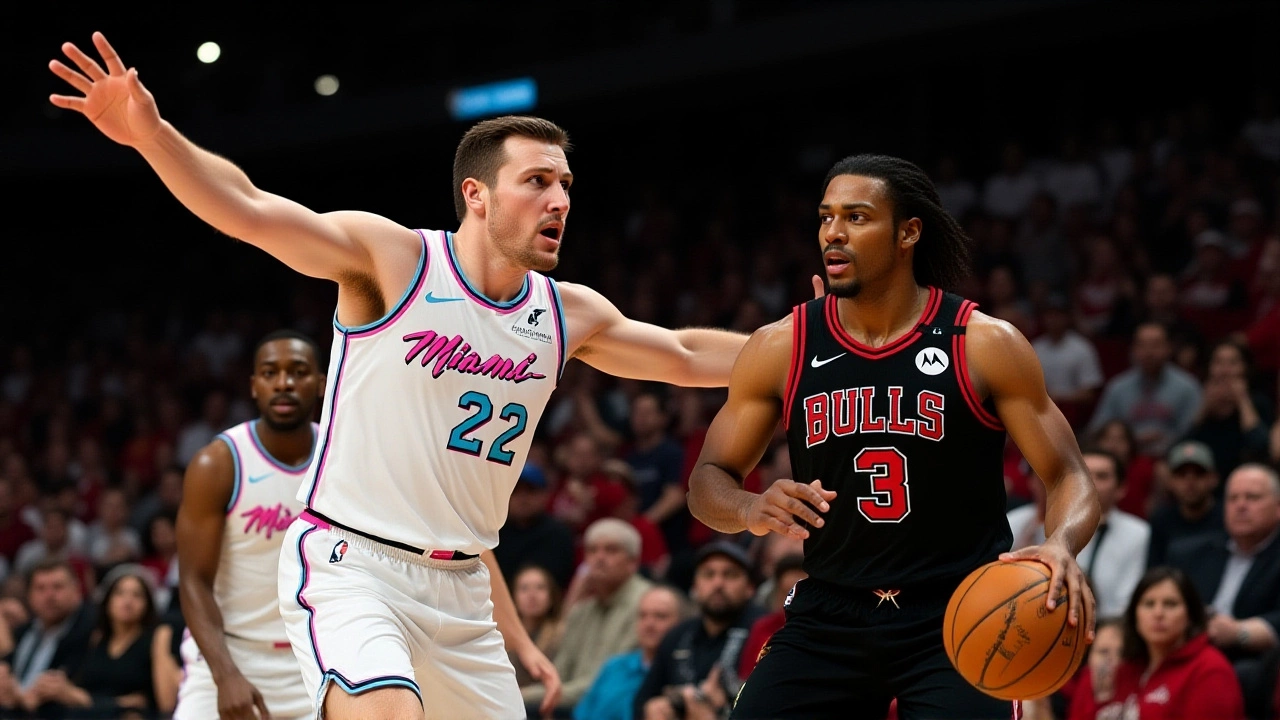
What’s Next for Both Teams?
The Heat now advance to the next round of the Play-In Tournament, where they’ll face either the Atlanta Hawks or the Indiana Pacers. Win that game, and they’re in the No. 8 seed. Lose, and they get one more shot against the winner of the 9-10 game. Either way, they’re playing with house money. After years of being overlooked, Miami is back in the conversation.
For the Bulls? The season’s over. But the real work begins now. Do they trade DeMar DeRozan before he hits free agency? Do they double down on Ayo Dosunmu and Jalen Smith? Or do they blow it all up for another rebuild? The answers won’t come quickly. But one thing’s clear: they can’t keep losing like this.
Historical Context: A Rivalry Rekindled
This isn’t the first time Miami and Chicago have clashed in high-stakes games. Back in 2011, the Heat—led by LeBron James and Dwyane Wade—defeated the Bulls in the Eastern Conference Finals. That series was defined by physicality and defense. This year’s matchup? It’s defined by speed, shooting, and youth. The Bulls once had the upper hand. Now, Miami owns the momentum. And with the Heat’s scoring average hitting 124.8 points per game this season—the highest in the league—it’s clear they’ve redefined what offense looks like in the modern NBA.
Frequently Asked Questions
How did Tyler Herro’s 38-point performance compare to other Play-In games?
Herro’s 38 points were the highest single-game total in NBA Play-In Tournament history, surpassing Devin Booker’s 35-point game in 2021. Only three players in the last decade have scored 35+ in a Play-In game, and none did so with seven three-pointers like Herro. His efficiency—13-of-22 from the field and 7-of-10 from deep—makes it one of the most efficient high-scoring performances ever in elimination games.
Why did the Bulls collapse so badly in the first half?
Chicago’s defense was out of sync. They failed to close out on shooters, allowed open threes on nearly every possession, and turned the ball over 11 times in the first two quarters. Ayo Dosunmu, their leading scorer, went 2-of-9 from the field before halftime. Without consistent ball movement or rim protection, Miami exploited every gap. The Heat’s defensive rotations were textbook—no easy buckets, no second-chance points.
What does this mean for Miami’s playoff chances?
Winning this game gives Miami a clear path to the No. 8 seed. If they win their next Play-In game, they’ll face the No. 1 seed in the first round—a tough draw, but not impossible. The Heat have beaten the Boston Celtics twice this season and are one of only three teams to hold the Milwaukee Bucks under 100 points in 2025. Their confidence is high, and their depth is unmatched. They’re not just a dark horse—they’re a legitimate threat.
How does this loss impact the Bulls’ rebuild?
Missing the playoffs for the third straight year forces Chicago to reevaluate its entire roster. DeMar DeRozan is a free agent this summer, and trading him could bring back a top-10 pick. Ayo Dosunmu shows promise, but he’s not a franchise player. The Bulls’ front office must decide: keep building around young talent, or pivot to a full rebuild. With the 2026 draft class expected to be loaded, this offseason could define their next five years.
Was the November 2025 143-107 loss a sign of things to come?
Absolutely. That game wasn’t an outlier—it was a preview. Miami’s offense has evolved into the most explosive in NBA history, averaging 124.8 points per game. They’ve topped 140 points four times this season, matching their total from the last seven seasons combined. Chicago, meanwhile, still lacks defensive cohesion and depth. The November loss wasn’t just a blowout—it was a warning sign the Bulls ignored.
What’s the biggest takeaway from this Heat-Bulls rivalry?
The balance of power has shifted. Chicago was the model franchise in the 2010s. Miami is the model now: disciplined, adaptable, and deep. The Bulls relied on star power. The Heat rely on system, culture, and continuity. This isn’t about one player or one game—it’s about philosophy. And right now, Miami’s is winning.
